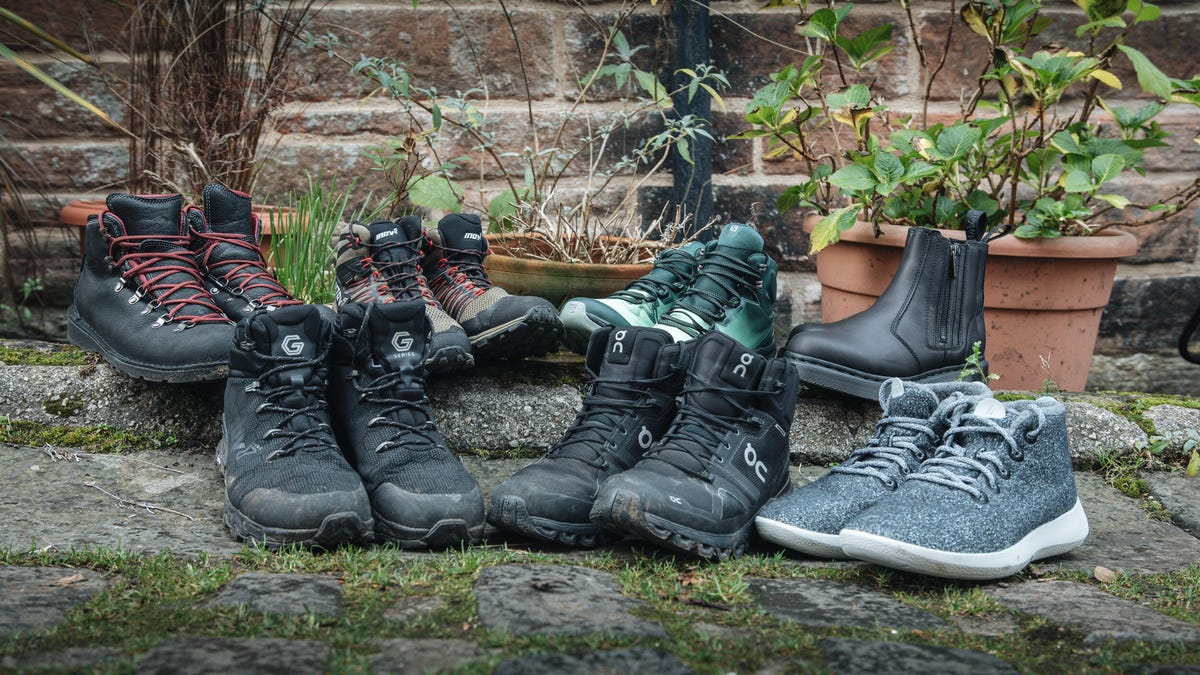
There’s a vast amount of choice in the hiking footwear world, from burly, leather hiking boots designed to tackle steep mountain passes, through to lightweight shoes that are more at home on the Italian riviera. Finding the right pair for you then will involve thinking hard about what you need from your boots and where you’re going to be taking them.
If you’ll mostly be walking on gentle countryside tracks or carefully-groomed forest trails then a walking shoe (such as the Salewa Dropline GTX) might be a good fit; their lighter design makes them great for all-day wearing. If you’re hitting more rocky terrain — or if you simply prefer the additional ankle support — then a mid-height boot (or higher) like the On Shoes Cloudrock or Inov Rocfly G 345 GTX will provide more stability and sure-footedness.
Keep the time of year and weather in mind too; some boots (like the Danner Mountain Pass Arctic Night) come with thermal linings and soles designed for snow and ice, while others (like the Erem XeroCole) are designed for breathability and comfort in hot conditions, like hiking the Arizona Trail.
While historically most hiking boots were made from leather, it’s more common to find boots made from synthetic fabrics today. These can be lighter and more comfortable to wear (along with being easier to care for), but can still offer superb support for even strenuous, multi-day hikes. Leather boots are still widely available however and companies like Danner produce excellent classic-looking leather boots that are comfortable and supportive on long-distance journeys.
If you’re likely to be hiking in wet conditions then look out for either Gore-Tex linings, or other ‘own-brand’ waterproof linings that the manufacturer might use. Keep in mind that “waterproof” in boots rarely means ‘submersible’ so don’t expect to stand in a river all day doing some fishing, expecting to keep the water out.
Finally, make sure you have the right fit. Some boots (like the Hanwag Tatra Wide) are designed specifically for those of you with a wider foot shape who might have struggled to find comfortable boots elsewhere. Most manufacturers tend to offer sizing guidance (“Fits true to size” or “Fits small”) on their websites, so keep that in mind when considering the fit.
